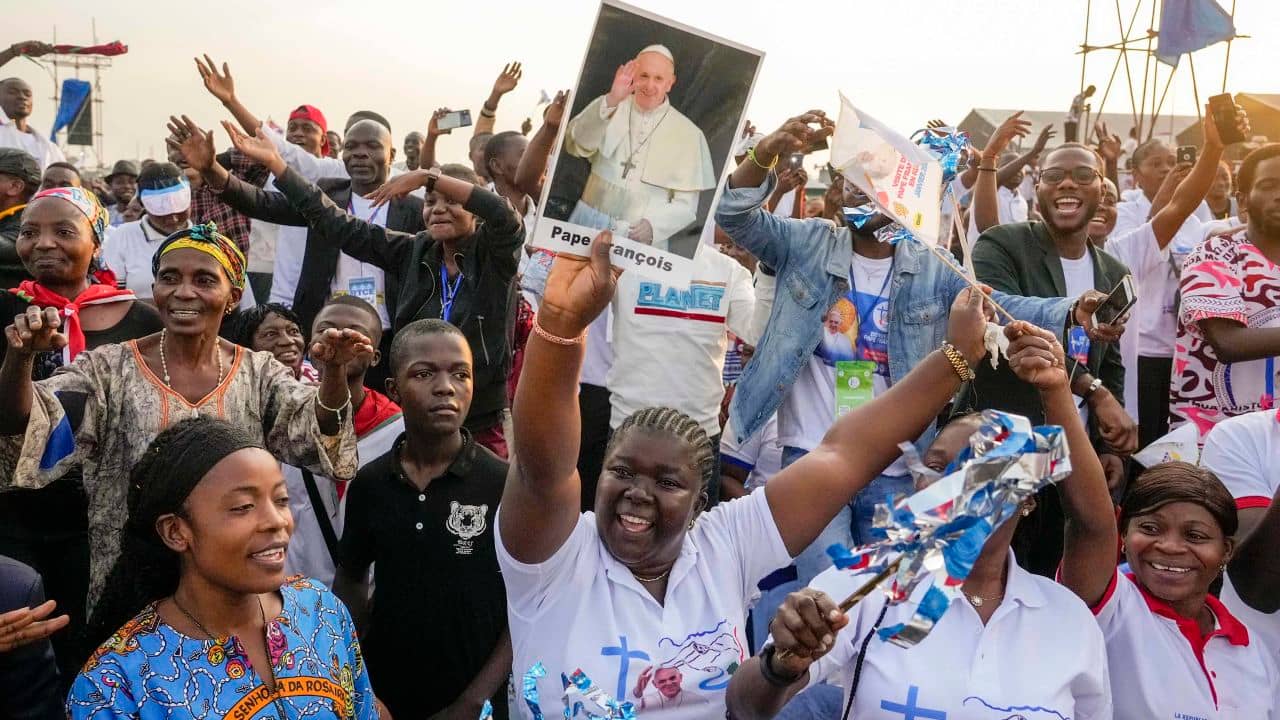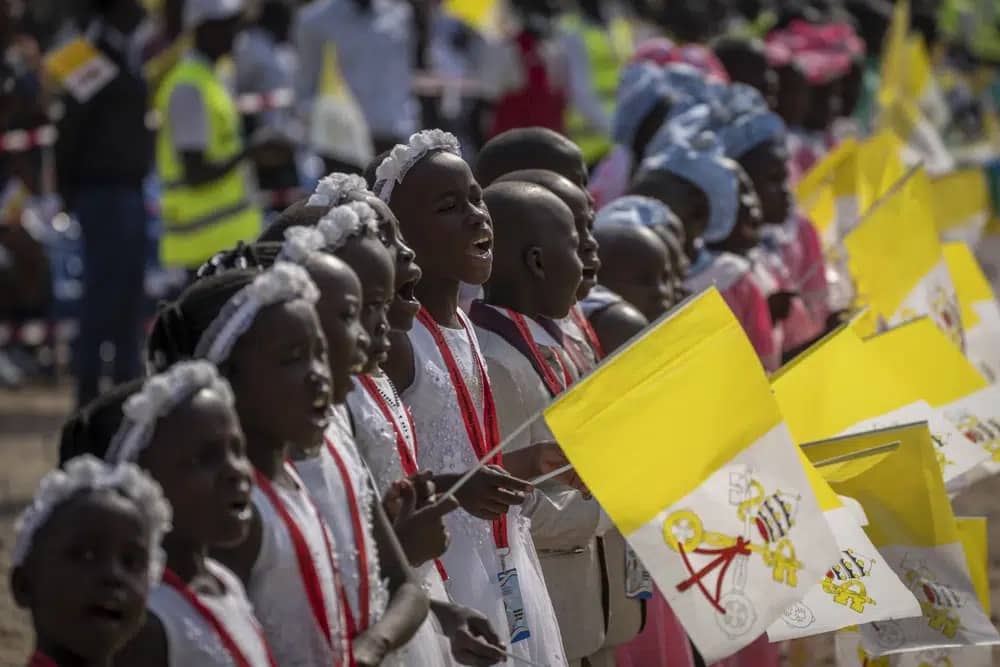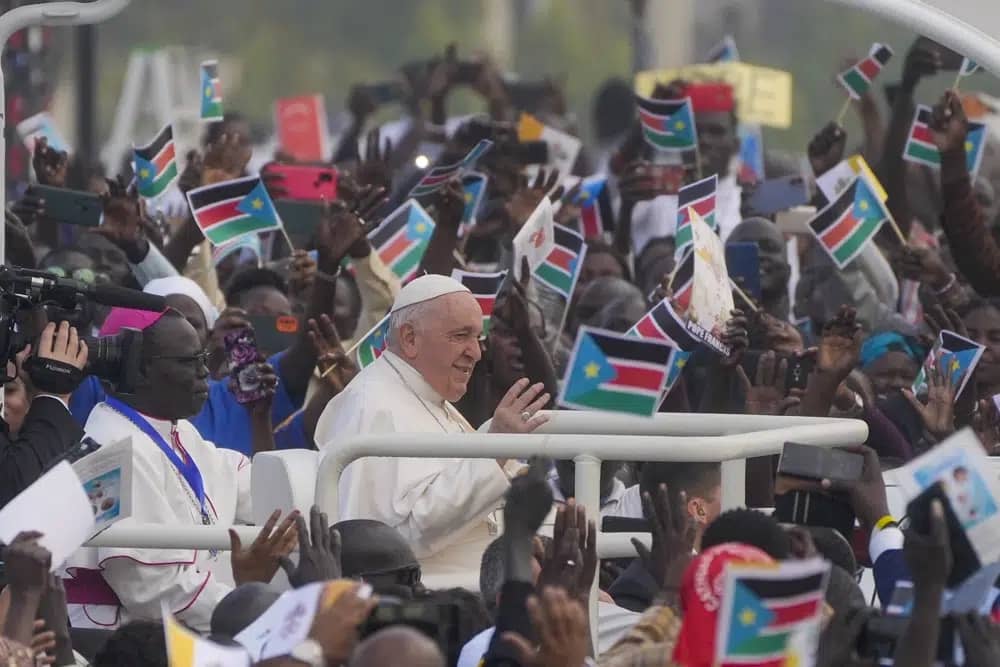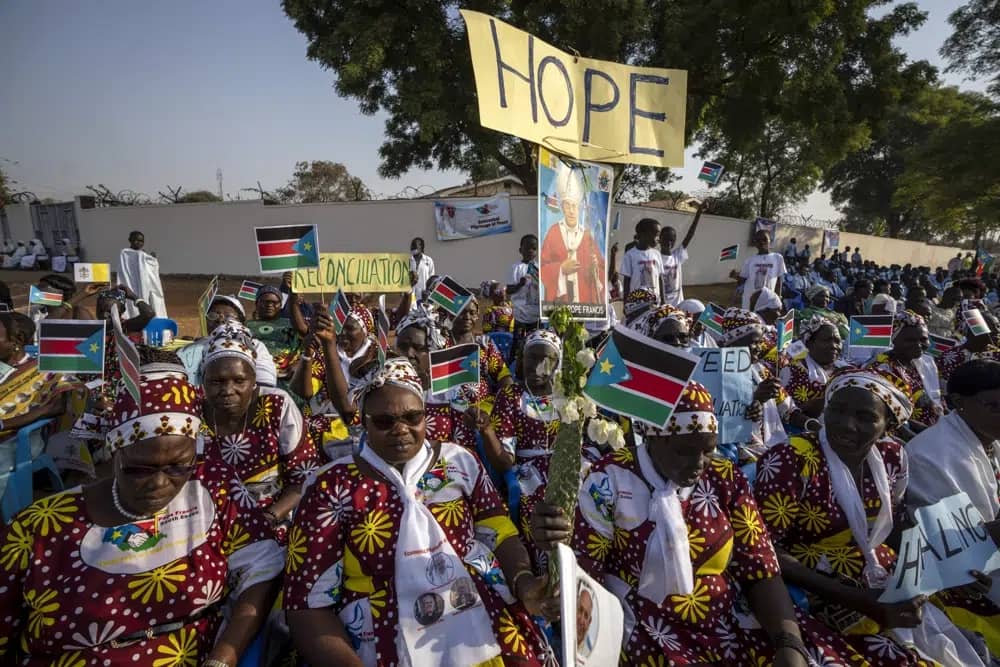YAOUNDÈ, Cameroon – Arguably Africa’s most thoroughly Catholic country, the Democratic Republic of Congo that’s welcoming Pope Francis this week carries a bitter history of church/state conflict but also deep social partnership.
With its six archdioceses and 42 dioceses, the Catholic Church enjoys a strong presence in the Congo, representing nearly half of the country’s 71 million people. Yet the story of the Church in the DRC has not always been a cozy one, says Father Godefroid Mombula Alekiabo, academic secretary of Saint Augustine University in Kinshasa.
Noting that the Church’s initial expansion in the country was a product of Belgian colonialism, Mombula said the once-cozy relation between church and state turned sour when nationalistic tendencies grew in the post-colonial era.
“Formerly a reliable ally, it (the Church) has increasingly become the state’s most severe institutional critic,” Mombula said.
In a webinar organized by the Pontifical charity Aid to the Church in Need, Mombula described the “overt conflict” between church and state that broke out in 1971 when the government of what was then known as “Zaire,” as part of its efforts to centralize and extend its authority, nationalized Catholic schools.
“The conflict intensified in 1972 when, as part of the authenticity campaign, all Zairians were ordered to drop their Christian baptismal names and adopt African ones,” Mombula said.
That campaign, introduced by one of Africa’s worst dictators, Mobutu Sese Seko, was designed to rid the central African country of the lingering vestiges of colonialism and to create what Mobutu believed was an “authentic national identity.”
The policy included renaming the Congo and its cities, abandoning Western-style attire in favor of the Mao-style tunic labeled the “abacost” and its female equivalent, and of course, forcing Christians to abandon their baptismal names.
Cardinal Joseph-Albert Malula of Leopoldville (today called Kinshasa) disapproved of the policy of forcing Christians to give up their baptismal names.
“The regime retaliated by forcing the cardinal into exile for three months and by seizing his residence,” Mombula said.
“In addition, the state banned all religious publications and youth groups. In 1974 the cardinal was permitted to return from exile, but relations between church and state continued to deteriorate.
The state declared that Christmas would no longer be a Zairian holiday, banned religious instruction from the schools, and ordered crucifixes and pictures of the pope removed from schools, hospitals, and public buildings. Those items were replaced by pictures of President Mobutu,” the cleric said.
But the policy backfired and the state had to reverse course, he said, at least to some extent.
“The state’s lack of managerial skills and resources rendered its takeover of the education system a disaster. Faced with these realities, the president asked religious institutions to resume responsibility for church schools, which, by 1976, they had done. Courses on religion were once again integrated into the curriculum.”
Mombula also talked about contemporary relations between church and state in the DRC, noting that the Church is now perceived as the “voice of opposition to authoritarian regimes.”
The Congolese Church has been front and center of electoral reforms in the country, and in condemning the rising violence in the East.
“In November 2022, the Congolese bishops issued a statement in which they warned that the country was at risk of ‘Balkanization’ due to the dire security situation, with rebel groups making significant gains in various parts of the territory,” he said.
Mombula also described the services the church has been rendering to the people of the DRC, from education to health care and social services.
“Besides involving more than 50 percent of the population in its religious services, its schools have educated over 60 percent of the nation’s primary school students and more than 40 percent of its secondary students,” the priest said.
He said the church owns and manages an extensive network of hospitals, schools, and clinics, as well as many economic enterprises, including farms.
Still, the Catholic Church in the DRC doesn’t enjoy much financial autonomy.
“Economically speaking, the Church continues to depend on grants from foreign sources: Several dioceses are not financially self-sufficient,” he said.















